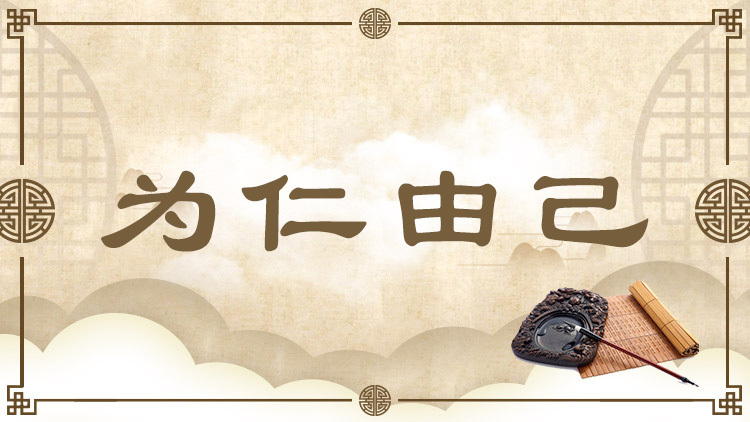為仁由己
Readily Practice Benevolence and Virtue

踐行仁德取決于自己。孔子在向弟子講解仁德之義時,提出了“為仁由己”的觀念。孔子強調,仁德的實現并不依賴于外在的規范。雖然仁德要求人們克制自己的言行以符合禮的要求,但對仁德的踐行根本上還是取決于人們自身對仁德的認同與追求,并自覺地按照仁德的標準行事。
When explaining benevolence and virtue to his disciples, Confucius put forward the concept that "one should readily practice benevolence and virtue." He stressed that the accomplishment of benevolence and virtue was not driven by external norms. Rather, one should restrain himself and follow the right conduct. This means one should believe in benevolence and virtue and willingly act in compliance with them.
引例 Citation:
◎顏淵問仁。子曰:“克己復禮為仁。一日克己復禮,天下歸仁焉。為仁由己,而由人乎哉?”(《論語·顏淵》)
顏淵請教何謂仁。孔子說:“克制自己的言行以符合禮的要求就是仁。一旦能夠克制自己的言行以符合禮的要求,天下都稱許你的仁德。踐行仁德依賴于自己,還要依賴別人嗎?”
Yan Yuan asked about benevolence. Confucius said, "To restrain yourself and practice propriety is benevolence. When you restrain yourself and practice propriety, people will all praise you for your benevolence. But you must practice benevolence yourself; how can others practice it for you?" (The Analects)
推薦:教育部 國家語委
供稿:北京外國語大學 外語教學與研究出版社
責任編輯:錢耐安





